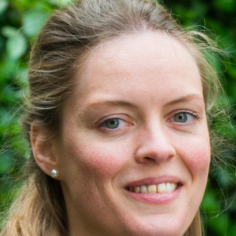 \
&
Contact us
\
&
Contact us
 \
&
Contact us
\
&
Contact us
Published on | 4 years ago
Last updated on | 3 weeks ago

margot.beereboom@fwo.be
The topics included in this infosheet are the following (headers in green):
One of the eight ambitions under the Open Science policy of the European Union is citizen science. ‘The general public should be able to make significant contributions and be recognised as valid European science knowledge producers.’ The aim under Horizon Europe is to ‘engage and involve citizens, civil society organisations and end-users in co-design and co-creation processes and promote responsible research and innovation.’ (EU’s Open Science policy)
Four in ten European citizens (40%) think that public opinion should be taken into account in decision making about science and technology and six out of ten (60%) think that involving non-scientists in research and technological development ensures that science and technology respond to the needs, values and expectations of society. (‘European citizens’ knowledge and attitudes towards science and technology’ Special Eurobarometer 516 (2021) and ‘European citizens’ knowledge and attitudes towards science and technology’ Special Eurobarometer 557 (2024) at request of DG Research and Innovation European Commission p.50/1; 206 and 261)
Since the first version of the Horizon Europe Programme Guide under recommended Open Science practices reference is made to ‘Citizen, civil society and end-user engagement’. For the proposal stage a distinction is made between three types of activities: co-design, co-creation and co-assessment activities. Which type(s) of activities that will be included in the proposal, depends on the research and innovation activities envisaged and on the disciplines and sectors implicated (Horizon Europe programme guide (version 1 May 2024) p. 44, 54-56).
Open science practices, including citizen science, is evaluated under the excellence and also the impact evaluation criterion (end users) and the consortium’s expertise on open science practices under criterion quality and efficiency of the implementation. For the main ERC grant types this is not the case, except for Proof of Concept grants where potential end users need to be assessed, and nor for EIC Accelerator, where potential customers need to be addressed in the business case.
In Horizon Europe periodic reports under section impact, it is requested to report on citizen engagement during and after the duration of the project has ended. For ERC this only has to be done in the final scientific report (standard application, evaluation and reporting templates for all Horizon Europe programme type of actions are available on the Funding and Tender Portal under reference documents).
Citizen science is a theme across all Horizon Europe programme parts, especially under Cluster 6 and the EU Missions (see below) call topics. There are also dedicated (open) calls for proposals and awards with regards to the promotion of citizen science.
Under the Horizon Europe Work Programme part Widening participation and strengthening the European Research Area, more specifically Destination 3 Reforming and Enhancing the EU Research and Innovation, there are several calls for proposals included with a specific focus on citizen science. The (past) calls for proposals with links to the Funding and Tender portal call topic pages and awards are listed here below:
Other Horizon Europe calls with links to citizen science and public engagement can be found via the Funding and Tender portal by searching on these and related key words (consumers, end-users, societal engagement,…). More and more call topics under Horizon Europe refer in the impact section to inclusion of the public in the actions.
Under Horizon Europe five missions are defined on cancer, soil, adaption to climate change, restoring oceans and waters and creating climate neutral and smart cities which should each deliver on a set of goals by 2030. In the framework of the missions it is the European Commissions’ aim to ‘engage with citizens to boost societal uptake of new solutions and approaches.’ (press release September 2021). Concretely this means that the public should be involved in the actions under the Horizon Europe two/three-yearly work programmes on missions and cross-cutting activities. More information on the (past) call topics for 2021-2022, 2023-2025 and 2026-2027 and the latest developments for each mission including the call topics per mission area.
We offer news and event updates, covering all domains and topics of Horizon Europe, Digital Europe & EDF (and occasionally, for ongoing projects, Horizon 2020).
Stay informed about what matters to you.
By signing up, you can opt in for e-mail notifications and get access to
a personalised dashboard that groups all news updates and event announcements in your domain(s).
Only for stakeholders located in Flanders
Atlas Integratie & Inburgering Antwerpen is an autonomous agency and a non-profit organisation responsible for implementing the Flemish integration policy on behalf of and for the City of Antwerp. Atlas offers several types of services for newcomers and Antwerp’s public and non-profit organisations.
In 2018, under the leadership of HafenCity University Hamburg, Atlas participated in the H2020 call 'Addressing the challenge of migrant integration through ICT-enabled solutions'. The proposal 'MICADO - Migrant Integration Cockpits and Dashboards' was approved by the European Commission and the project started in January 2019 and runs until June 2022.